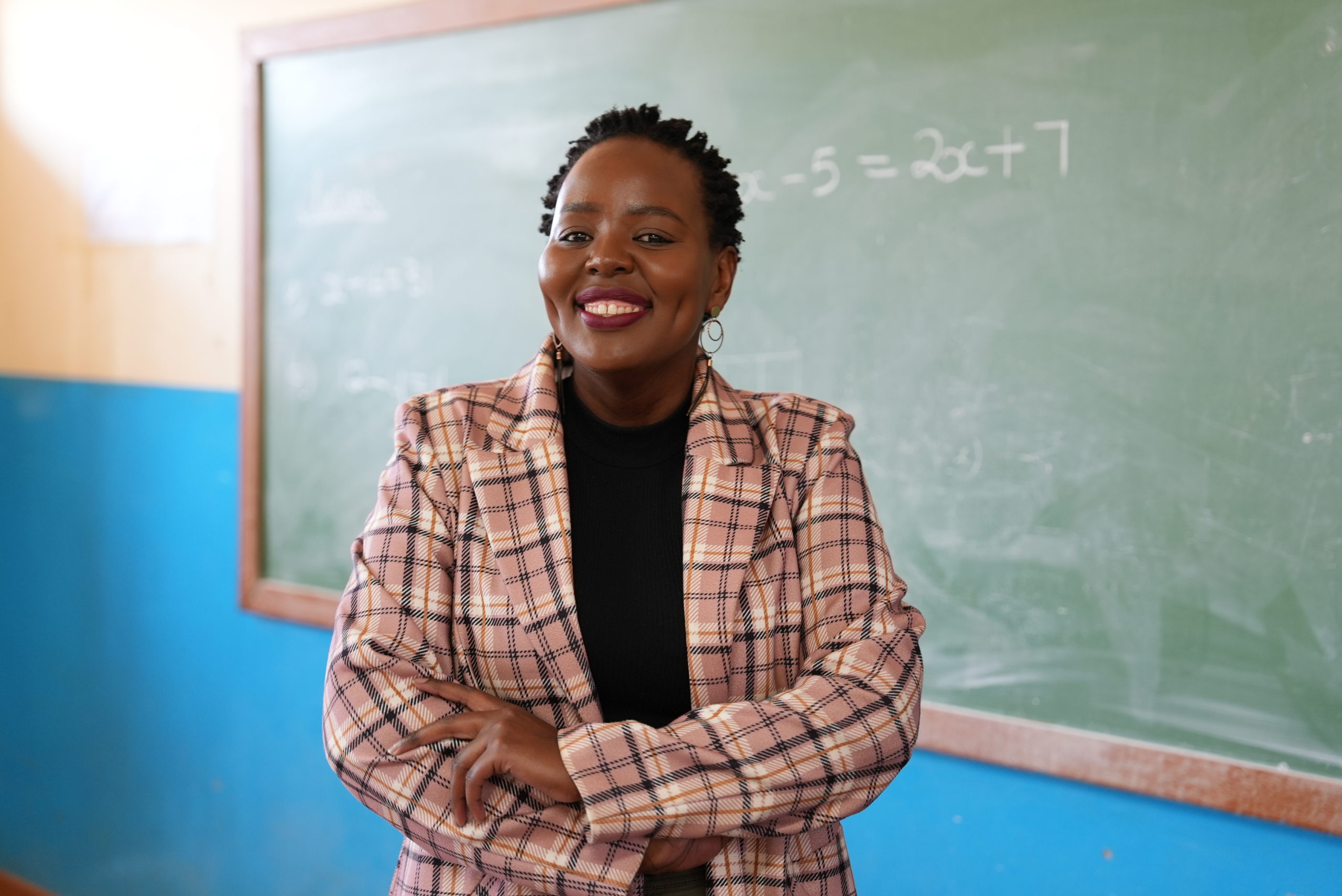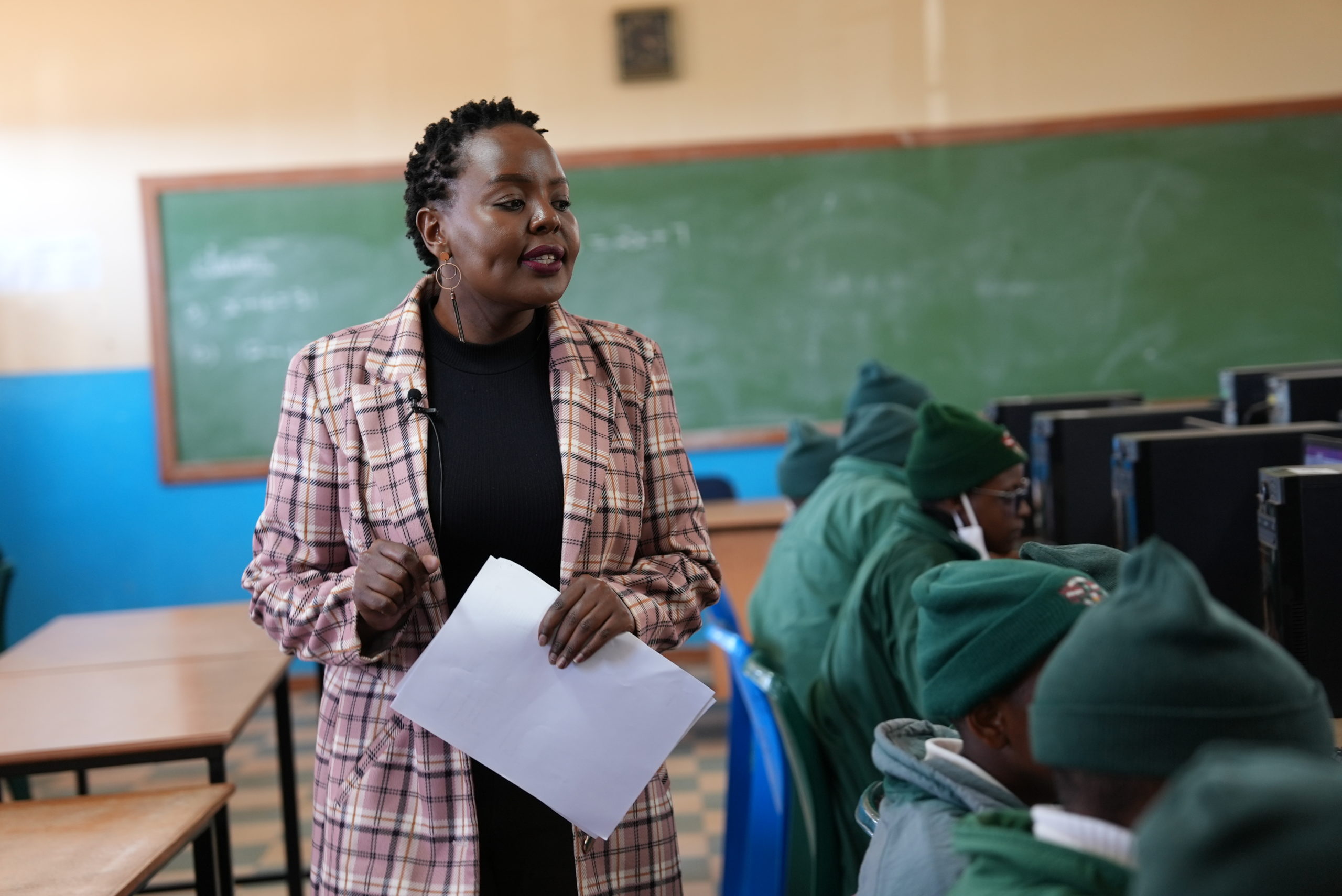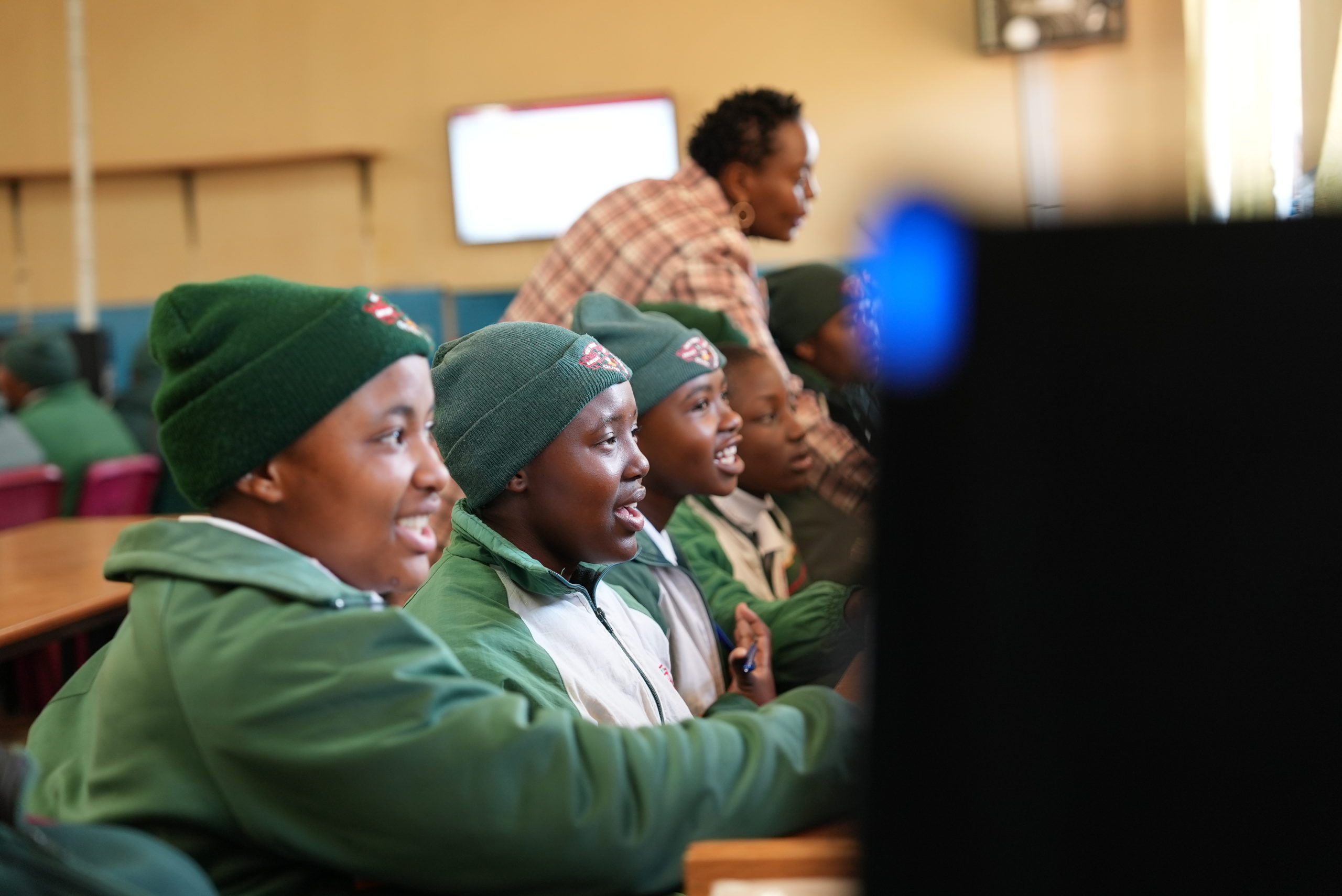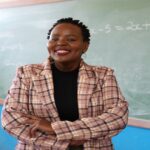
Empowering Girls
How Digital Learning Is Changing The Lives Of
Students In The Mountain Regions of Lesotho

It’s the break of dawn in Leribe a picturesque town in the mountain kingdom of Lesotho. The frosty mountain air still lingers as learners from the adjacent Holy Family and Sacred Heart High School hurriedly make their way to school.
Holy Family is the girl’s school while Sacred Heart caters to boys. During assembly at Holy Family, the girls, wearing their distinctive green uniforms line up according to their grades. They put on an impressive singing display, with their angelic voices filling up the mountain air.
Their faces are hopeful and full of ambition, it’s clear they want to do well in their studies. After a few announcements Principal Matumane Tefo dismisses the learners and they excitedly run off to class, but it’s the Grade 10’s who seem the happiest as they line up outside the computer laboratory.
“They get excited about coming to the computer lab,” says Lindiwe Sabajwa, the ICT and mathematics teacher. “It’s basically one of the few classes that they actually have access to the computers, while the rest of the classes are still very traditional” she said.

Digital access in Lesotho’s mountain communities helps narrow gender and geographic gaps, giving girls new opportunities to build skills and pursue their ambitions.

The grade 10s take up their places inside class, each of the 40 learners has their own computer. Today they are learning about date base creation and Ms. Sebajwa takes them through the process, she walks between different rows of learners patiently explaining what they need to do.
Learners at Holy Family are fortunate to have access to computers that are connected to the internet because due to the mountainous nature of the country and lack of infrastructure, many schools are on the wrong side of the digital divide. To overcome this digital divide, Giga assisted the government to conduct a broadband infrastructure analysis within Lesotho, which will inform investment planning and procurement,
Ms. Sebajwa is passionate about expanding access to the internet in Lesotho “It’s no longer a luxury that we can say some schools can have them, some schools cannot have them. It’s a must for all schools to have. As an ICT teacher I believe in digital literacy as a gateway for technology, and a gateway of creativity and innovation. If more schools incorporated internet learning and technology in classrooms then we are going to have children who are more brilliant,” she said.



Gaining access to the internet has the power to transform lives and enables learners to dream bigger and to see a world much larger than their current reality.
This rings true for 15-year-old Lerato Mots’osi, access to the internet has broadened the grade 10 learner’s horizons, “It’s very exciting actually because learning how to do things over the internet is exciting in itself. When I grow up, I want to be in the engineering business. So ICT is actually helping me a lot, especially through coding,” she said.


Across Lesotho, stories like Lerato’s show what’s possible when learners gain access to the digital world. Yet, many schools across the country remain unconnected—held back by geography, infrastructure gaps, and limited resources.
To help change this, To help change this Giga is partnering with the Government of Lesotho to understand the scale of the challenge and identify opportunities to expand connectivity to every school.
Through detailed school mapping, infrastructure modeling and cost analysis, and data-driven monitoring, Giga is helping to build a clearer picture of the country’s connectivity landscape—and to ensure that existing investments and capital from international financial institutions are deployed effectively and reach the schools that need them most.



By providing technical support on planning, monitoring, and procurement processes, Giga is helping create the systems needed to deliver sustainable and equitable school connectivity at scale. It’s an ambitious vision—but one that could transform education across the mountain kingdom, ensuring that every child, no matter how remote their school, can learn, dream, and thrive in a connected world.
Download .pdf
